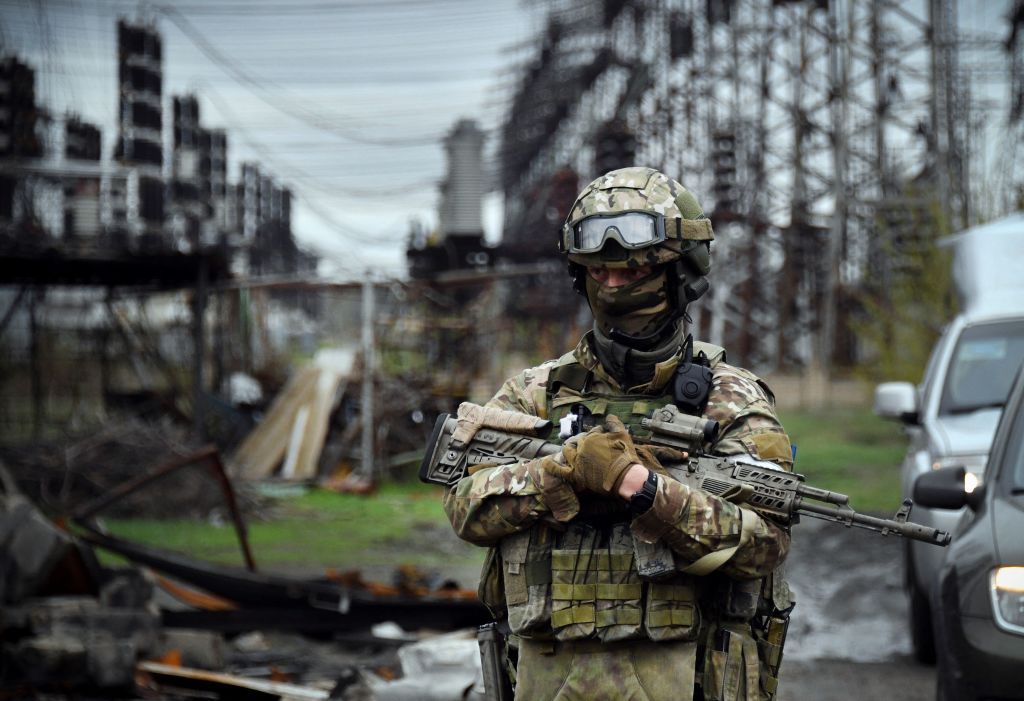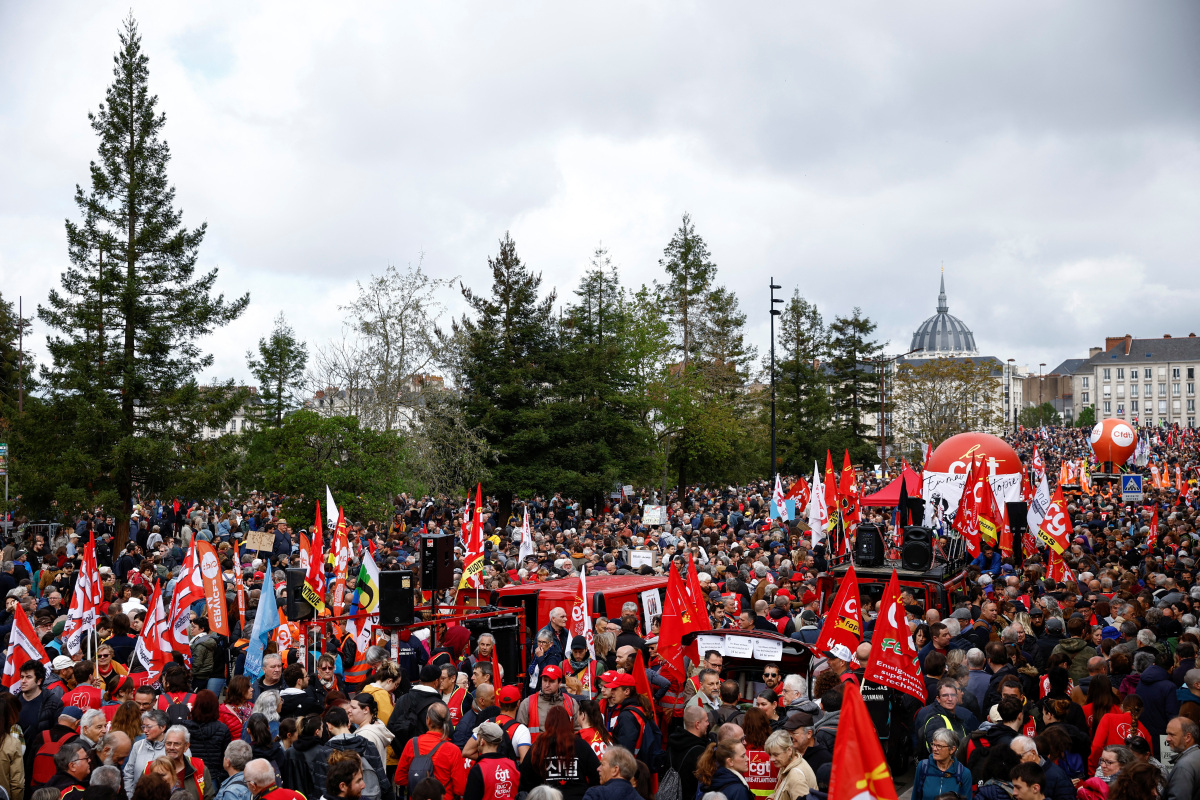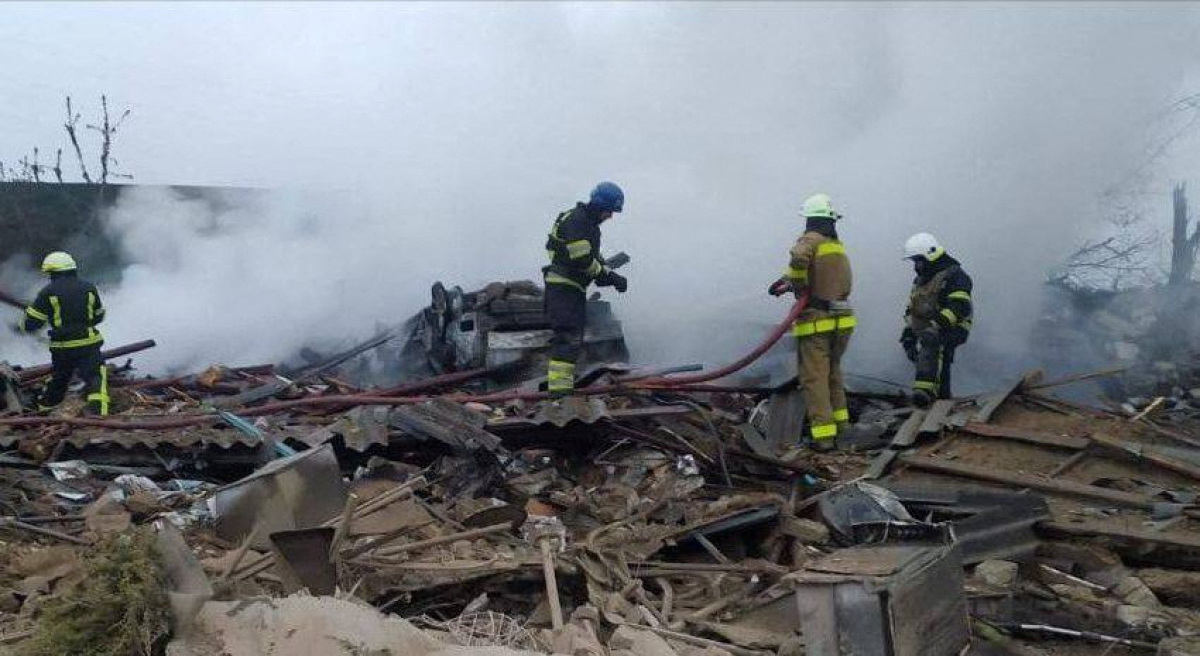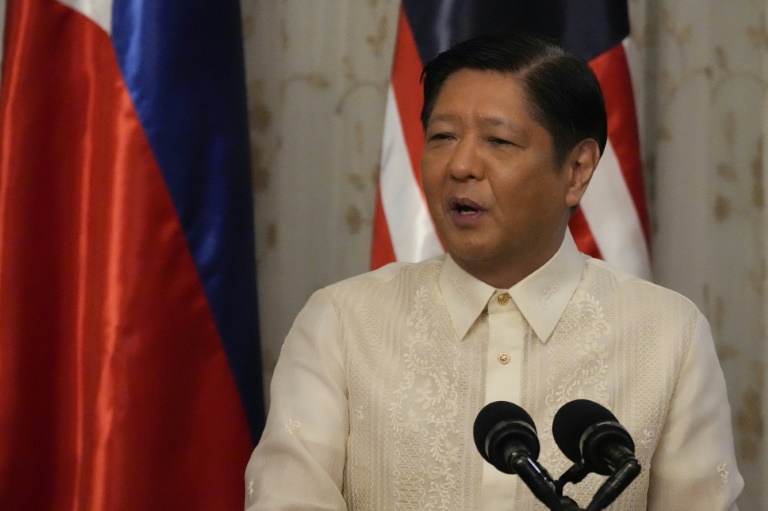ALEXANDER NEMENOV/AFP via Getty Images
KEY POINTS
- Russia created “Zindans,” or improvised cells consisting of holes in the ground with metal grille
- Russian soldiers who were found drunk or attempted to terminate contracts were sent to Zindans
- More draconian discipline measures for Russian soldiers were introduced since the autumn of last year
As the war in Ukraine enters its 15th month, Russia has devised a new type of punishment to discipline its erring soldiers, according to a new assessment.
Russian commanders are now punishing troops committing misdemeanors by placing them in “Zindans,” the U.K. Ministry of Defense said in an intelligence update Sunday.
“In recent months, Russian commanders have likely started punishing breaches in discipline by detaining the offending troops in ‘Zindans’ which are improvised cells consisting of holes in the ground covered with a metal grille,” the British defense ministry said.
Some Russian military personnel were punished with stays inside Zindans for drunkenness and attempts to terminate their service contracts.
The U.K. intelligence report noted that the Russian military has introduced more “draconian” initiatives to improve discipline among its personnel since autumn of last year and since Gen. Valery Gerasimov, the chief of the General Staff of the Russian Armed Forces, took control of Moscow’s military operations in Ukraine in January.
In the early months of the war, Russian commanders were not as strict in enforcing discipline, allegedly letting those who refused to join the battlefield quietly return home, the British defense ministry noted.
In a previous U.K. intelligence update last month, a Russian news channel reportedly said that “extremely high” numbers of crimes and deaths among Russian soldiers on the Ukrainian battlefield were due to alcohol consumption.
The British intelligence report noted that Russian commanders likely knew that alcohol abuse could negatively affect combat effectiveness. However, as heavy drinking is pervasive in Russia, it has long been seen as a tacitly accepted part of the country’s military culture.
In September 2022, Russian President Vladimir Putin signed a decree introducing stiffer penalties for those who voluntarily surrender to enemy forces, desert, and refuse to fight.
Those who were caught violating the degree could face imprisonment of up to 10 years, Al Jazeera reported.
Meanwhile, Ukrainian President Volodymyr Zelensky also signed a law that toughens punishments for disobedience or desertion from the Ukrainian military earlier this year.
Erring Ukrainian soldiers could face up to 12 years in prison for desertion, up to 10 years for disobedience or refusal to fight, and up to seven years for threatening commanders, Kyiv Post reported.
But human rights activists criticized the Ukrainian law, and a petition against the measure gathered almost 35,000 signatures.
“Instead of thanking soldiers, who have held off a full-scale Russian invasion for almost a year and successfully implemented operations to liberate the territory, we get jail time for the slightest disagreement or remark to commanders,” the petition said.
Valery Zaluzhny, the commander-in-chief of the Ukrainian Armed Forces, defended the law by saying, “In times of war, we need quick, effective solutions.”








